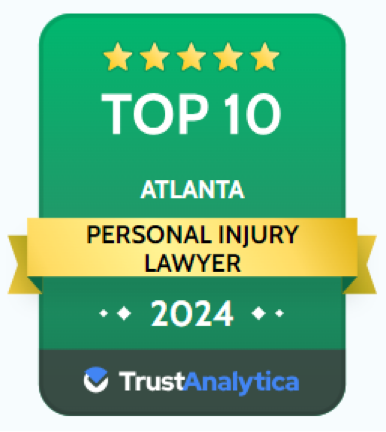All information provided about the law is very general in nature and should not be relied upon as legal advice. Every situation is different and should be analyzed by a lawyer who can provide individualized advice based on the facts involved in your unique situation, and a consideration of all of the nuances of the statutes and case law that apply at the time.
Can I Get Traffic Camera Footage of My Car Accident in Georgia?
Even though you exercise extreme caution when you’re behind the wheel, not everyone does, which can make Georgia roads dangerous. Thankfully, Peach State roads and highways are widely monitored by a network of traffic cameras, which can help hold reckless drivers accountable. However, as an accident victim, you may not have access to this recording. In certain circumstances, your attorney can request traffic camera footage. While it might be possible to prove fault without it, having the recording can make things much easier for your legal team to help determine fault and assert your rights as a victim.
When you choose Montlick as your legal representation, you can rest assured knowing you’ll receive dedicated service and your concerns will be heard and your voice valued. Having a professional legal team like Montlick on your side can bring a sense of relief and confidence during such challenging times.
The Importance of Traffic Cam Footage
So, why should you worry about how to get traffic camera footage? Traffic cam footage and similar video recordings have the potential to be key evidence in your personal injury case. It’s not just potential, it’s the power to provide clear proof. It may be used to:
- Provide proof of fault. Traffic cameras can clarify details of an accident, such as who had the right of way. When one party disputes another’s claims, this becomes crucial evidence.
- Verify or disprove claims. Most people are hesitant to admit blame for accidents, which is why many collisions have conflicting stories. Traffic camera footage, however, is unbiased. This provides a reliable means to support your version, making it more difficult for insurance adjustors or companies to undervalue your claim.
- Demonstrate injury severity. Cameras can record the intensity of the impact of a collision, illustrating how your injuries became so serious. This is another way to strengthen your claim with the insurance company.
- Identify important witnesses. The footage might show more than just the accident; it could reveal witnesses. Bystanders or other drivers visible in the frame may be able to provide eyewitness accounts that strengthen your case.
If you’re involved in a car accident, whether you receive compensation depends on the evidence your attorney can gather to build a strong case – and such evidence could include traffic camera recordings. Your Montlick personal injury lawyer will know how to request traffic camera footage to demonstrate that you had the right of way and were not at fault.
How to Obtain CCTV Video
By now, you’re probably wondering, “Can I request CCTV footage of an accident?” In some cases, you can obtain CCTV footage simply by asking. If a residence or business has a security camera, you might be able to contact the owner and request a copy. The same applies to other drivers with dashcams or a witness who recorded the accident.
While it’s often possible to easily request footage from residence or business security cameras, obtaining recordings from traffic cameras is more complicated. In many cases, subpoenas are required and an attorney can best assist in determining how to get traffic footage. Ideally, traffic recordings would be easily accessible. However, in Georgia, due to logistical challenges such as the difficulty of storing large amounts of data and the staffing needed to fulfill requests, the Georgia Department of Transportation (GDOT) does not record or retain footage.
Georgia Open Records Act
Although you might not have access to data from highway cameras, other resources can help you build a strong car accident case against the liable party. For example, the Georgia Department of Public Safety allows anyone to submit an open records request under the Official Code of Georgia Annotated (O.C.G.A.) 50-18-70. There is also the Efficient Purchase of Records Transfer System (EPORTS), which is a web-based platform that, for a small fee, enables you to search for and retrieve records such as:
- Citations
- Crash reports
- Incident reports
- Photos
- Dashcam videos
When submitting your request for crash-related records, include:
- Your full name, mailing address, and phone number
- Names of any victims or subjects of the report or investigation
- Specific records are being requested
- Name of the county or city where the accident took place
- Date of the crash or investigation for which you need the photos or records
- Crash report number or incident report number
If you are a Montlick client, our attorneys can submit these requests on your behalf.
Potential Roadblocks
Figuring out how to access traffic camera footage can be difficult. A key obstacle is that municipalities or private companies may control some recordings. These organizations have their own rules about releasing footage. Remember that many cameras overwrite old recordings after a short time. That’s why, if you decide to request recordings from these sources, it’s important to act quickly: waiting could mean losing access to vital evidence for your car accident claim. This urgency and proactive approach can significantly impact the strength of your case.
Other Types of Camera Footage
Since working out how to get traffic camera footage can be complicated for many reasons, exploring other types of recordings is a smart move. Other possible sources of video footage of a motor vehicle accident include:
- Dashcams. Drivers involved in accidents or following a crash may capture the event on their vehicle’s dashcam, which can serve as crucial evidence in a later motor vehicle accident case. Additionally, police officers responding to auto accidents will record dashcam footage as they approach the crash scene.
- Private security cameras. Residences and businesses may have security cameras installed on the outside of their buildings. When a collision happens near a home or company with outdoor security cameras, those devices might capture essential details about the crash.
- Cell phone footage. Sometimes, witnesses or bystanders record the aftermath of a crash before police arrive. In fortunate cases, an accident victim might obtain video footage from a bystander who was recording something else and accidentally caught the collision.
- Patrol car recordings. Patrol cars in Georgia are now equipped with video cameras, which upload captured footage to cloud storage. A video recorded by the responding officer at your accident scene may help strengthen your claim.
Montlick Injury Attorneys: Sourcing The Footage You Need to Win
Fighting to get traffic light footage and other camera recordings can be exhausting. However, it’s not a task you have to undertake on your own. A dedicated personal injury attorney from Montlick can do the heavy lifting for you and break down barriers standing in your way.
For over 40 years, we have offered clients compassionate, comprehensive legal support. Our team will review your case, gather evidence, and negotiate with insurance companies to ensure you receive fair compensation, reducing your stress so you can focus entirely on healing. Call us today for help with your car accident case.
Related Questions
Do Traffic Cameras Store Recordings?
While Georgia does a good job of placing traffic cameras along most routes, GDOT does not actually record or store videos. Instead, the cameras provide livestreams for travelers to monitor traffic flow. To see past traffic camera footage, visit the Georgia Traffic Cam Archive.
Can I Request Traffic Camera Footage of My Car Accident?
The short answer is that while you may be able to request it, the agency in control of the footage may not agree to provide it without a subpoena. This is where Montlick comes in. A personal injury attorney can subpoena the footage under most circumstances and usually only after a lawsuit is filed. It is essential to do this as soon as possible before the footage is deleted. Traffic camera footage can be valuable evidence in proving your injury case.
How Long is Traffic Camera Footage Stored?
The length of time traffic camera footage is stored varies by agency, but it is important to note that no agency stores it for long. For instance, GDOT only maintains a livestream of traffic, which is overwritten within 24–72 hours unless an event occurs that is flagged for review. Similarly, red-light and speed cameras only lock footage if a violation is detected, which is then kept for 30–90 days. Police surveillance cameras may be kept anywhere from seven days to several months, and private security cameras typically store footage between seven and 30 days.
How useful is this for you?
Would you like to speak with an attorney?
Call NowRelated Questions
We Win More than Settlements.
We win the peace-of-mind you need to get your life back.
At Montlick, we believe comprehensive legal representation is a right, not a privilege. That’s why we provide our services on a contingency fee basis. You only pay when we win.









